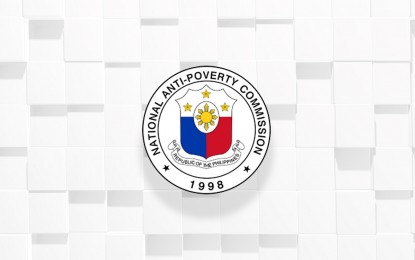
MANILA – The Philippine government has reaffirmed its commitment to safeguarding the rights of Filipino women migrating from their town of origin, specifically to other countries.
At a 68th Session of the Commission on the Status of Women (CSW) side event in New York on Wednesday (Manila time), National Anti-Poverty Commission (NAPC) Undersecretary Girlie Amarillo said the Philippines has made great strides in advancing women's rights and women empowerment but pointed out the gaps and challenges that still need to be addressed, especially those faced by farmers, indigenous women, and migrants.
Amarillo said the latest census data shows that more than half of all migrants in the Philippines are women who are at higher risk for abuse and exploitation compared to their male counterparts.
"This is why our efforts to safeguard the rights of migrant women is continuous," she said.
In 2023 alone, the Philippine government assisted more than 30,000 migrants in need of legal assistance, closed more than 600 web pages that were detrimental to the rights and welfare of migrants, and strengthened its monitoring of migrants entering regions where illegal recruitment is rampant.
She noted that the government also provides options for Filipino migrant women to return and find jobs or livelihoods back in the Philippines.
Giving an example, she said migrant teachers have been given the option to work for public elementary and high schools upon their return to the country.
Amarillo also cited the various livelihood assistance and seed capital programs available to returnees, with special focus on women whose jobs are affected by hostilities, crises, termination, disasters, abuse, and illegal recruitment.
Government interventions include programs aligned with addressing other gender-based challenges in health care and child-rearing.
Also last year, she said, more than 40,000 migrants and their families received medical aid from the migrant-focused overseas Filipino workers (OFW) Hospital and Diagnostic Center.
The Overseas Filipino Worker Children’s Circle was established in 2022 to help the children of migrant workers mitigate the social costs of having a parent working overseas.
Amarillo likewise delved into the migration of women from the provinces to urbanized areas across the Philippines in the hope of getting out of poverty.
"We look deeper on the magnitude of poverty in our country and data shows that more poor families are living in the highly urbanized region and provinces," she said, noting that even the richest province in the country hosts the most number of poor families.
"This indicates a pattern of migration from rural areas resulting (in an) increase in population of informal settlers in the urban areas, women and girls included.”
As this phenomenon increases the need for social, economic, and ecological services in urban communities, she said, the government also implements various programs focused on health, education, food, shelter, jobs, and solid waste management, among others.
For Manila's long-term strategy, Amarillo cited the country's efforts to create more development centers in potential areas to provide more employment and livelihood as a way to prevent further migration.
"Such decentralized development can likewise increase capacity to provide basic services and will further benefit and capacitate girls and women," she said.
"With these accomplishments, we are reminded that our efforts must be inclusive and far-reaching."
The event was organized by the International Organization for Migration (IOM) to advance gender equality and women empowerment in the context of poverty and migration. (PNA)
